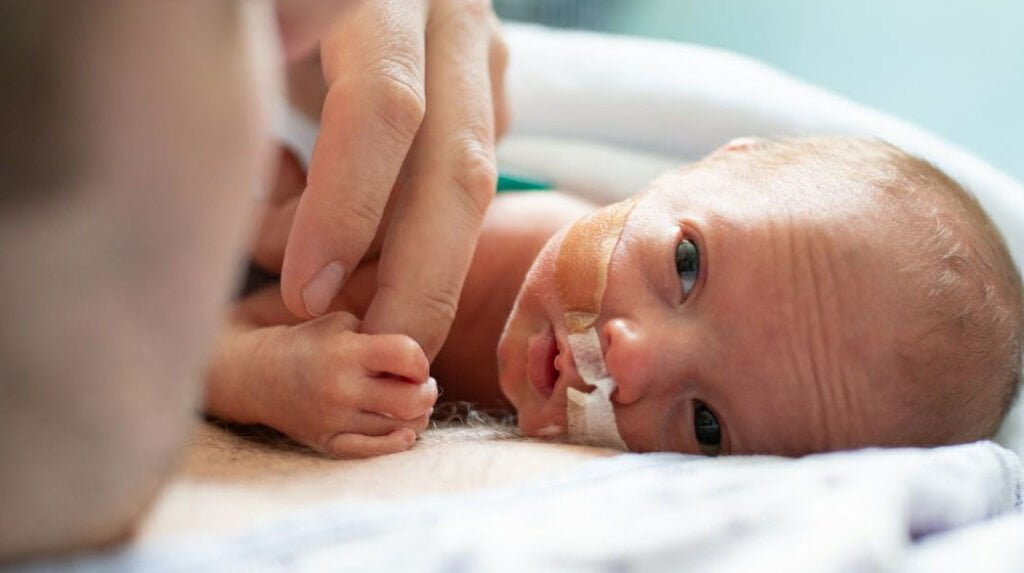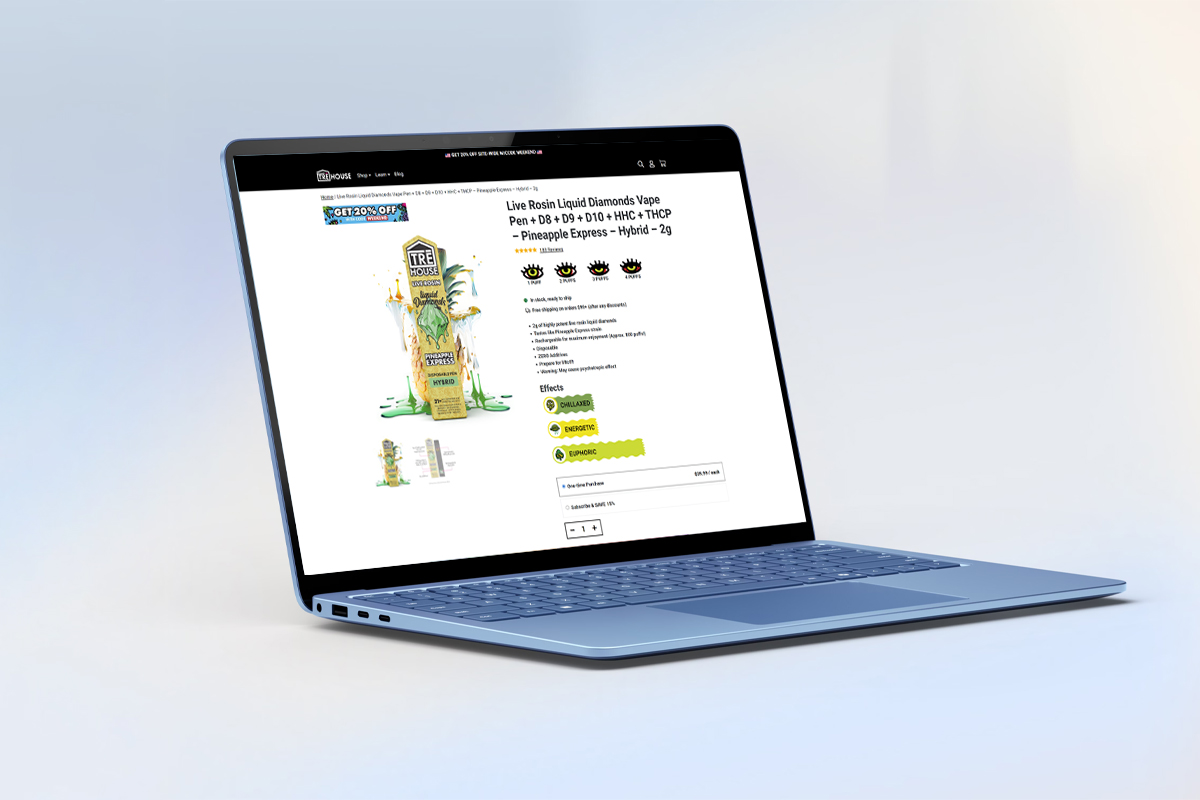Can You Vape While Pregnant?
When it comes to pregnancy, the health and well-being of both the mother and the baby are of utmost importance. One of the key factors that can significantly impact a pregnancy is the use of tobacco products, including vaping. With the rise in popularity of vaping and electronic cigarettes, many pregnant individuals are wondering if it is safe to vape while expecting.
In this article, we will delve into the risks and potential harm associated with vaping during pregnancy. While smoking has long been recognized as detrimental to both the mother and the developing baby, the effects of vaping are still being studied. However, preliminary research suggests that vaping can have harmful effects on fetal development.
We will explore the differences between smoking and vaping, the potential dangers of vaping while pregnant, and the various risks that it poses to both the mother and the baby. It is crucial to understand the potential consequences of exposing a developing fetus to the chemicals found in vaping products.
Furthermore, we will discuss the importance of quitting vaping during pregnancy and provide strategies and resources for those who are looking to quit. Quitting vaping can be challenging, but it is essential for the health and well-being of both the mother and the baby.
It is important to note that the information provided in this article is based on current research and expert opinions. As the field of vaping and pregnancy continues to evolve, it is crucial to stay informed and consult with healthcare professionals for personalized advice.
Understanding the Risks of Vaping During Pregnancy

Vaping has gained popularity in recent years, with many people considering it a safer alternative to traditional cigarette smoking. However, when it comes to pregnancy, the risks associated with vaping cannot be ignored. While research on the effects of vaping during pregnancy is still limited, there is evidence to suggest that it can have harmful consequences for both the mother and the developing fetus.
One of the main concerns with vaping during pregnancy is the exposure to nicotine. E-cigarettes and vape liquids contain nicotine, which is a highly addictive substance. Nicotine can have detrimental effects on fetal development, including damage to the baby’s brain and lungs. It can also increase the risk of miscarriage, stillbirth, premature birth, and low birth weight.
In addition to nicotine, vape liquids also contain other chemicals and additives that may be harmful to the developing fetus. These chemicals can vary depending on the brand and flavor of the vape liquid, and many of them have not been thoroughly studied for their effects on pregnancy.
Furthermore, there is a risk of secondhand exposure to vaping smoke, which can also pose risks to the pregnant woman and the baby. Secondhand exposure to vape smoke may contain harmful toxins and chemicals that can be inhaled by the pregnant woman and affect the developing fetus.
Given the potential risks associated with vaping during pregnancy, it is strongly recommended that pregnant women avoid vaping altogether. Quitting vaping, just like quitting smoking, can be challenging, but it is essential for the health and well-being of both the mother and the baby.
If you are pregnant and currently vaping, it is crucial to seek support and professional help to quit. There are various strategies and resources available to assist you in quitting vaping, including support programs, nicotine replacement therapy, and stress-reducing techniques.
Remember, the sooner you quit vaping during pregnancy, the better chance you give your baby for a healthy start in life.
Effects of Vaping on Fetal Development

When it comes to the effects of vaping on fetal development, the evidence is clear: vaping nicotine during pregnancy can be detrimental to the baby. While some may believe that vaping is a safer alternative to smoking, the truth is that nicotine disrupts fetal development, just like cigarette smoking does.
Research conducted at the University of Colorado Anschutz Medical Campus has found that even low levels of e-cigarette vapor during pregnancy can inhibit fetal growth. In fact, vaping nicotine has been shown to interfere with the development of multiple organs and systems in the fetus.
One study using an animal model found that fetuses exposed to vaping ended up with smaller and shorter bones. Additionally, the nicotine in e-cigarettes was found to impact which genes are turned on in the fetal lung. These findings highlight the potential harm that vaping can have on a developing baby.
It’s important to note that the long-term effects of vaping on fetal development are still being studied, as vaping is a relatively new phenomenon. However, the existing evidence suggests that nicotine, regardless of whether it is inhaled through traditional cigarettes or e-cigarettes, can damage the baby’s brain and lungs, and may increase the risk of low birth weight and preterm delivery.
Given these risks, it is crucial for pregnant individuals to avoid all forms of nicotine, including vaping. The popularity of vaping among young people and the addictive nature of nicotine make it likely that vaping during pregnancy will continue to increase. Therefore, it is essential to inform the public about the effects of maternal e-cigarette exposure on fetal development and to encourage pregnant individuals to abstain from vaping for the health of their babies.
Comparing Vaping to Smoking During Pregnancy

When it comes to the question of whether you can vape while pregnant, it’s important to understand the risks involved. While vaping may be marketed as a safer alternative to smoking, both activities come with their own set of dangers for pregnant individuals and their babies.
While smoking has been extensively researched and proven to have harmful effects during pregnancy, the research on vaping is still limited. However, studies suggest that vaping can also have detrimental effects on fetal development. The chemicals and additives in vape liquids, even those marketed as nicotine-free, can still pose risks to the baby’s brain and lung development.
Both smoking and vaping expose the fetus to harmful substances. Nicotine, a highly addictive chemical found in both cigarettes and e-cigarettes, can negatively impact pregnancy and infant health. Additionally, the flavoring chemicals and other additives in vape liquids may also be harmful to the developing baby.
It’s important to note that vaping devices can be just as dangerous as traditional cigarettes. Malfunctioning devices have been known to cause explosions and fires, posing a serious risk to both the pregnant individual and their baby.
While more research is needed to fully understand the long-term effects of vaping during pregnancy, it is clear that both smoking and vaping carry significant risks. It is recommended to avoid both activities to ensure the best possible outcomes for the health and well-being of both the pregnant individual and their baby.
If you are struggling to quit smoking or vaping, it is crucial to seek support and professional help. There are resources available, such as support programs and nicotine replacement therapy, that can assist you in your journey to quit. Remember, quitting is not only beneficial for your own health but also for the health and development of your baby.
The Importance of Quitting Vaping

When it comes to the health of both you and your baby, quitting vaping during pregnancy is of utmost importance. While some may believe that vaping is a safer alternative to smoking, the truth is that it still poses significant risks to fetal development. Vaping exposes your baby to harmful chemicals and toxins, including nicotine, which can have long-lasting effects on the brain and organs.
By quitting vaping, you not only protect your baby from potential harm but also improve your own health. Vaping has been linked to reduced lung capacity and heart issues, and the long-term effects of vaping are still not fully understood. By quitting, you give yourself the best chance at a healthier life.
Quitting vaping may not be easy, but there are strategies and support available to help you along the way. Consider joining a support program or seeking nicotine replacement therapy to manage cravings. Identifying and avoiding triggers, as well as practicing alternative stress-reducing skills, can also be effective in your journey to quit vaping.
Remember, it’s never too late to quit. Even if you’ve been vaping throughout your pregnancy, quitting at any stage can still benefit both you and your baby. The sooner you take action to reduce your exposure to vaping, the better chance your baby will have for a healthy start in life.
If you’re finding it difficult to quit vaping on your own, don’t hesitate to seek professional help. Your healthcare provider can offer guidance and support tailored to your specific needs. Remember, you’re not alone in this journey, and by quitting vaping, you’re taking a crucial step toward ensuring the best possible outcome for you and your baby.
Strategies for Quitting Vaping
Quitting vaping during pregnancy is crucial for the health and well-being of both you and your baby. While it may be challenging, there are effective strategies to help you quit vaping and overcome nicotine addiction. Here are some strategies to consider:
- Seek professional help: Reach out to your healthcare provider or a tobacco cessation specialist who can provide guidance and support tailored to your specific needs. They can offer personalized advice, recommend nicotine replacement therapies, and help you create a quit plan.
- Set a quit date: Choose a specific date to quit vaping and mark it on your calendar. Having a clear deadline can help you stay motivated and focused on your goal.
- Identify triggers and develop coping mechanisms: Pay attention to situations or emotions that make you reach for your vape. Develop alternative coping mechanisms, such as deep breathing exercises, physical activity, or engaging in a hobby, to distract yourself from cravings.
- Build a support network: Inform your partner, family, and friends about your decision to quit vaping. Surround yourself with supportive individuals who can encourage and motivate you throughout your journey.
- Consider nicotine replacement therapy (NRT): Talk to your healthcare provider about using NRT, such as nicotine gum or patches, to help manage withdrawal symptoms. NRT can provide a safer alternative to vaping while gradually reducing your nicotine dependence.
- Practice stress management techniques: Pregnancy can be a stressful time, and stress can trigger cravings. Explore stress-reducing techniques like meditation, yoga, or talking to a therapist to help you manage stress without relying on vaping.
- Stay motivated and celebrate milestones: Keep reminding yourself of the benefits of quitting vaping for both you and your baby. Celebrate small victories along the way, such as completing a week without vaping or reaching a milestone in your pregnancy.
Remember, quitting vaping is a process, and it may take time to fully overcome nicotine addiction. Be patient with yourself and stay committed to your goal. With the right strategies and support, you can successfully quit vaping and provide a healthier environment for your baby’s development.
Seeking Support and Professional Help
When it comes to quitting vaping during pregnancy, seeking support and professional help can greatly increase your chances of success. Quitting any form of nicotine use can be challenging, but with the right resources and guidance, you can overcome the addiction and protect the health of both you and your baby.
- Join a support program: Consider joining a support program specifically designed for individuals who are trying to quit vaping. These programs often provide a supportive community, helpful tips, and strategies for managing cravings and withdrawal symptoms.
- Try nicotine replacement therapy: Nicotine replacement therapy (NRT) can be a helpful tool in quitting vaping. NRT products such as patches, gum, or lozenges can provide a controlled dose of nicotine to help reduce cravings and gradually wean off the addiction. Consult with your healthcare provider to determine if NRT is suitable for you during pregnancy.
- Identify and avoid triggers: Take note of situations or activities that tend to trigger your vaping cravings and try to avoid them as much as possible. This may involve making changes to your daily routine or finding alternative ways to cope with stress or boredom.
- Practice alternative stress-reducing skills: Vaping often serves as a coping mechanism for stress. Explore alternative stress-reducing techniques such as deep breathing exercises, meditation, yoga, or engaging in hobbies and activities that bring you joy and relaxation.
Remember, quitting vaping is not an easy journey, but it is a worthwhile one for the health and well-being of both you and your baby. Don’t hesitate to reach out to your healthcare provider or support groups for additional guidance and assistance. You are not alone in this journey, and with the right support, you can successfully quit vaping and provide a healthier environment for your baby’s development.








